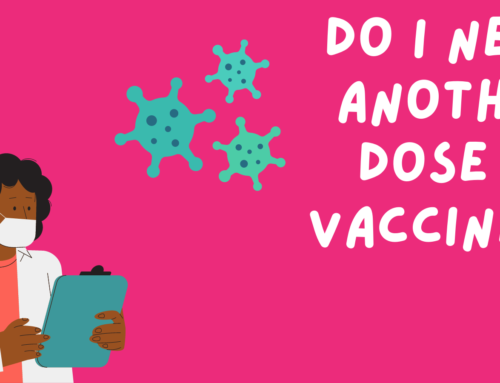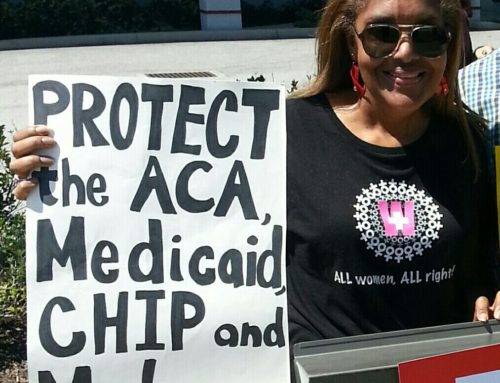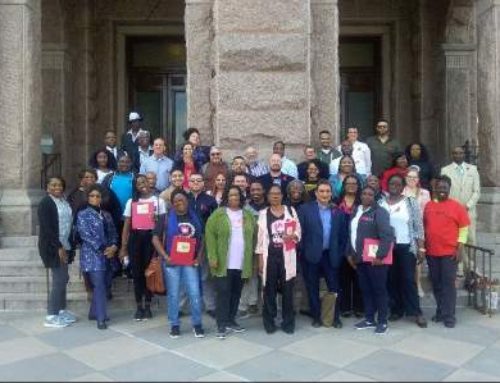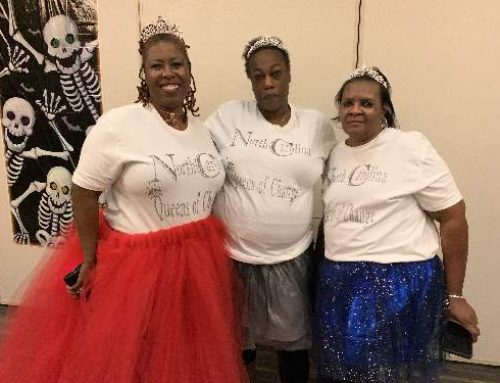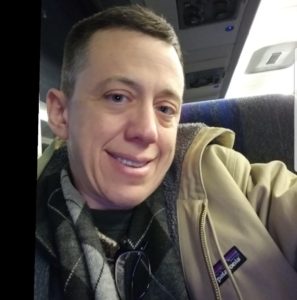 March 23, 2020: It is almost impossible to have a conversation these days without COVID-19, the disease caused by the novel coronavirus, creeping in. Before so many people around the world really understood the seriousness of the new disease, JD Davids–the self-described Cranky Queer and veteran of HIV activism, including ACT UP–was busy gathering information to share with community and networks. He also foresaw the need for people with chronic illnesses who could be most severely impacted by the pandemic to organize a network to ensure mutual aid and advocacy in the face of a growing global crisis.
March 23, 2020: It is almost impossible to have a conversation these days without COVID-19, the disease caused by the novel coronavirus, creeping in. Before so many people around the world really understood the seriousness of the new disease, JD Davids–the self-described Cranky Queer and veteran of HIV activism, including ACT UP–was busy gathering information to share with community and networks. He also foresaw the need for people with chronic illnesses who could be most severely impacted by the pandemic to organize a network to ensure mutual aid and advocacy in the face of a growing global crisis.Q. You organized a webinar about what people with chronic illness needed to know about and prepare for the coronavirus epidemic before most people in the U.S. were taking it seriously. What gave you the idea to start organizing early and in that way?
A. I feel it’s important to use the skills and follow the passions I have, so my knowledge of public health info on this and my belief in disability justice drove me forward. Plus I need the info for myself and my family.
Q. You didn’t just stop at a webinar–you are also organizing a network of people with chronic illness. Where is that process now, and what do you envision this looking like? What are the next steps and how can people join the network or get involved in organizing it?
A. We are going to hold a few more webinars, and will see how best we can support this network in doing what it needs to do – and hopefully folding into an existing effort because we don’t want to create a whole new infrastructure if something already exists! People can sign on here.
Q. You’ve been doing this work for so many years. You recently started a blog and newsletter called the Cranky Queer Guide to Chronic Illness. Tell us more about this project and where you see it going.
A. Chronic health conditions affect as many as one of every two people in the United States, and many of us live with multiple diagnoses. I’m one of them.
To live our best lives, we need clear information and a compassionate connection. But — despite the prominence of battles over health care in the United States, a burgeoning “wellness” industry, and heightened concern over pain management and the opioid crisis — the way forward for those of us living with major or multiple chronic illnesses remains shrouded.
We can and must become “illders”: wise elders of any age who turn the demands of living with chronic conditions into opportunities for self-knowledge, growth, and connection.
I don’t want to trust my life to digital health information reliant on pharma marketing money. Essential, honest and practical advice and support for living with chronic illnesses can be hard to find, despite a deluge of condition-specific and medical websites, direct-to-patient pharmaceutical advertising, diagnosis-based support groups, and social media chatter.
The confluence of narrowly-defined medical specialties; the market interests of drug companies, medical insurance, and health care providers; and economic and social divisions and inequities ensure that many of us remain isolated and ill-informed — and just plain ill.
So that’s why I started Cranky Queer and why I’m working on a book called The Cranky Queer Guide to Chronic Illness! So we can share our illder wisdom!
Q. Many people are frightened and confused right now about what covid-19 means for people living with HIV. While HIV and coronavirus are clearly not the same thing or anywhere close, what are a couple of lessons from the early days of the HIV epidemic that you think could be especially useful in how we approach the covid-19 pandemic?
A. Love each other, don’t fear each other. Build our own structures of support while ALSO demanding government resources and leadership. Take turns doing the work and resting, supporting each other when we need care and when we can lead. Read Vito Russo’s Why We Fight speech from 1992.




